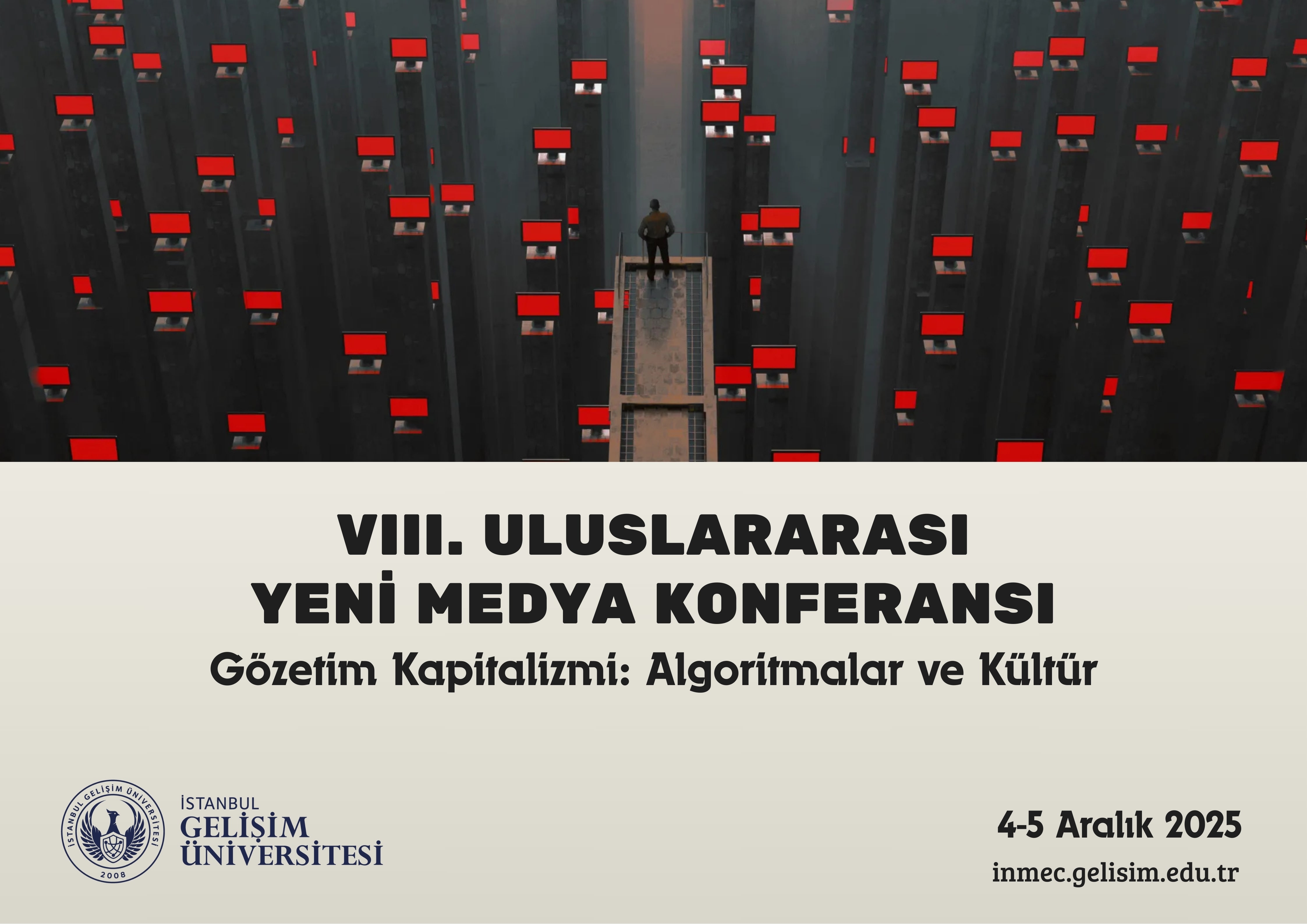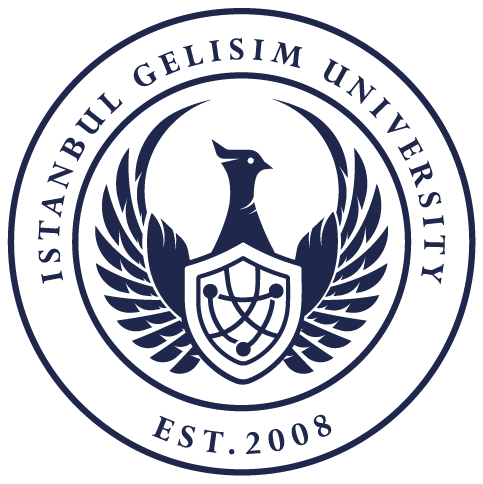Sayfa Başlığı

VII. NEW MEDIA CONFERENCE WILL BE HELD ONLINE AND FACE TO FACE
Dear Researchers,
The 8th International New Media Conference, organized this year by the Department of New Media and Communication and the Department of Radio, Television, and Cinema of the Faculty of Economics, Administrative and Social Sciences at Istanbul Gelişim University, will be held on December 4-5, 2025, with the theme: Surveillance Capitalism: Algorithms and Culture.
The daily lives of individuals are becoming increasingly controlled, particularly by states and corporations seeking to advance their capitalist goals. The modern economy, dominated by capitalism, focuses largely on the production and consumption of information. The current economic climate, also known as the information economy, necessitates increased data accumulation. The focused and systematic collection of personal information is directly related to surveillance. In the digital age, surveillance focuses not only on the body but also on all human interactions as part of our daily online interactions. Algorithms shape the conditions of freedom by generating more information to analyze user data more effectively.
Data surveillance has always been a tool for power. As a result of surveillance, individuals can be subjected to social exclusion based on gender, ethnicity, religion, sexual orientation, social class, and other categorical data. In other words, it is also criticized for its potential for discrimination. Surveillance results in greater privilege for the powerful and increasing inequality for marginalized groups. The 8th International New Media Conference highlights the transformation of data surveillance from a mechanism for increasing efficiency into a tool of social control, and it opens up discussions about the social, political, and economic practices shaped by the development of information technologies.
Abstracts submitted to the International New Media Conference are subject to a double-blind peer-review process. Papers deemed incompatible with research and publication ethics or identified as plagiarism risk will not be considered. Therefore, the similarity rate detected by screening programs must not exceed 20%. Papers presented at the event will be published by an international publishing house in two separate volumes: an abstract book and a full-text book.
The conference subtopics include, but are not limited to:
Digital capitalism and cultural transformation
Digital platforms and algorithms
Surveillance capitalism
Digital data
Data privacy
Algorithmic bias
Digital exploitation
Algorithm transparency
Algorithmic literacy
Platform capitalism
Data mining
Information technologies
Digital identity
Digital activism
Information economy
Privacy
Cybersecurity
Disinformation
Media ownership concentration
Digital public sphere
Artificial intelligence and cultural production
Digital labor
Communication law
Cognitive capitalism
Monitoring and/or censorship mechanisms
Important Dates:
| Abstract Submission Deadline : | 14 November 2025 |
| Abstract Acceptance Notification : | 21 November 2025 |
| Announcement of the Conference Program : | 28 November 2025 |
| Conference Dates: | 4-5 December 2025 |
| Full Paper Submission Deadline : |
9 January 2026 |
Open Science
Open science is defined as "transparent and accessible knowledge shared and developed through collaborative networks" (Vicente-Sáez and Martínez-Fuentes, 2018). It is founded on the principle that accurate and scientific knowledge should be accessible to everyone. In this sense, it emphasizes inequality in access to information and seeks methods to eliminate this inequality. In other words, it defends the public's right to access information. Open science also aims to create opportunities for stronger scientific production by encouraging collaboration and cooperation, and it creates spaces for this.
This conference, titled Surveillance Capitalism: Algorithms and Culture, embraces the principle of open science because of its belief that access to scientific knowledge should not be restricted and that the advancement of science should be supported through collaboration and cooperation.
Vicente-Sáez, R., & Martínez-Fuentes, C. (2018). Open Science now: A systematic literature review for an integrated definition. Journal of business research, 88, 428-436.




.jpg)
